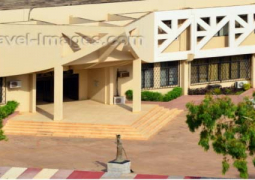The West Africa Quality Programme (WAQP) will today convene a day session for the key component implementers of the national programme for the strengthening of quality infrastructure in The Gambia.
The forum will be held at the Baobab Holiday Resort in Kololi.
This working session is designed to enable the key concerned parties of the programme discuss and determine the implementation modalities of the work plans and share responsibilities for effective implementation.
The objective is to plan and schedule the implementation of the activities of the regional and national work-plans as well as to develop and finalise individual work programmes, Terms of References (TORs) and implementation agreements for the activities of each technical area.
The working session is expected to realise the following three objectives. Firstly, to make work programmes and schedules thus clarifying assigned and delegated responsibilities. Secondly, to generate the commitment of key parties through signing memorandum of understanding.
And finally, to put in place a framework for enhanced ownership of the programme at the national level.
The West Africa Quality Programme (WAQP) is a technical assistance aimed at strengthening the quality infrastructure in the participating countries of the ECOWAS (non UMOEA countries) and
It intervenes in the following eight areas namely: trade economic analysis, accreditation, conformity assessment, standardization, multilateral trading system, inspection, quality promotion and consumer affairs.
The Programme is implemented by UNIDO, through a Programme Management Unit at its headquarters is in
Also at the country level, it is being undertaken in close collaboration with national stakeholders and beneficiaries in the various private sector industries, civil society organisations, government agencies, laboratories, trade and professional organisations and economic operators in the country.




